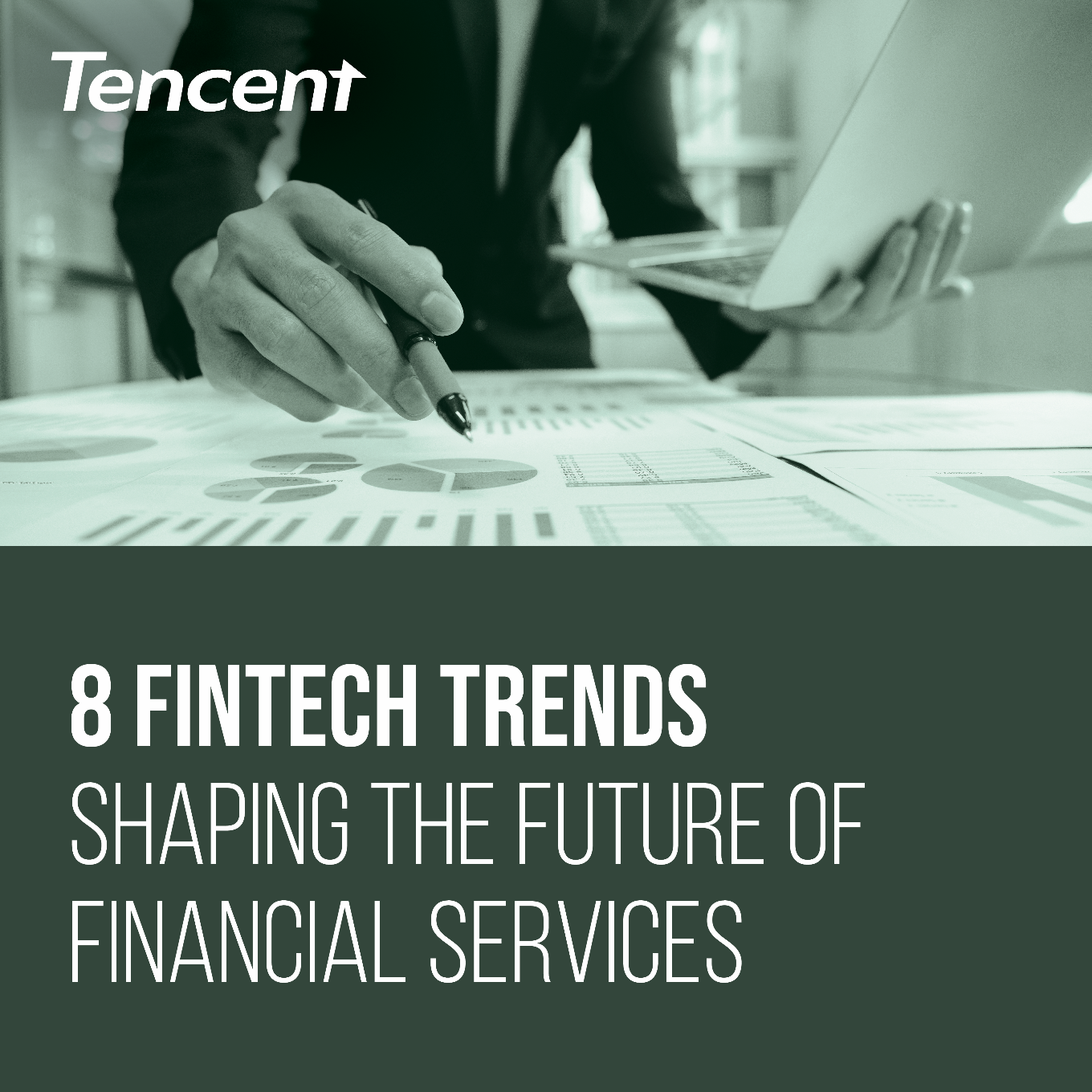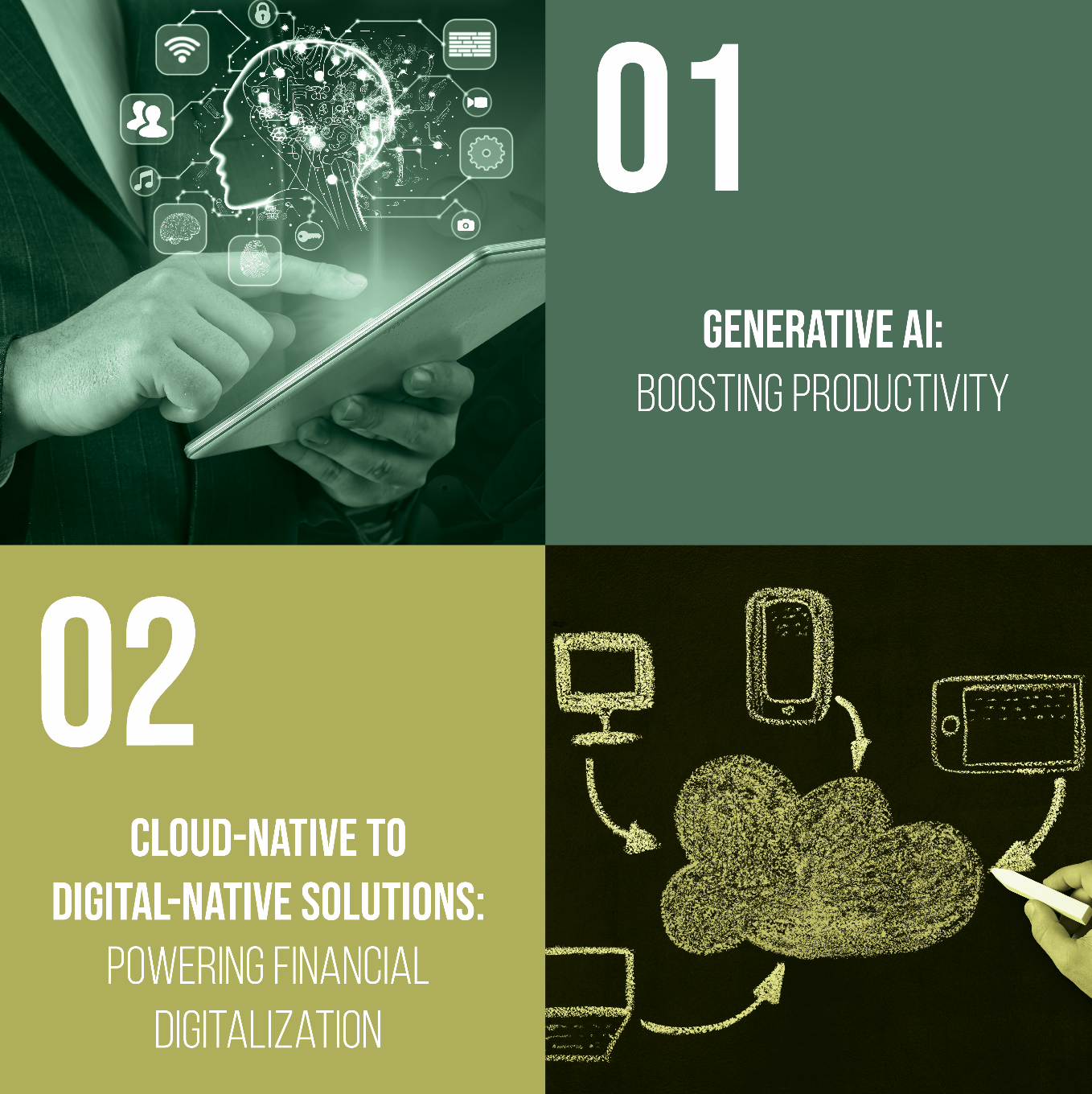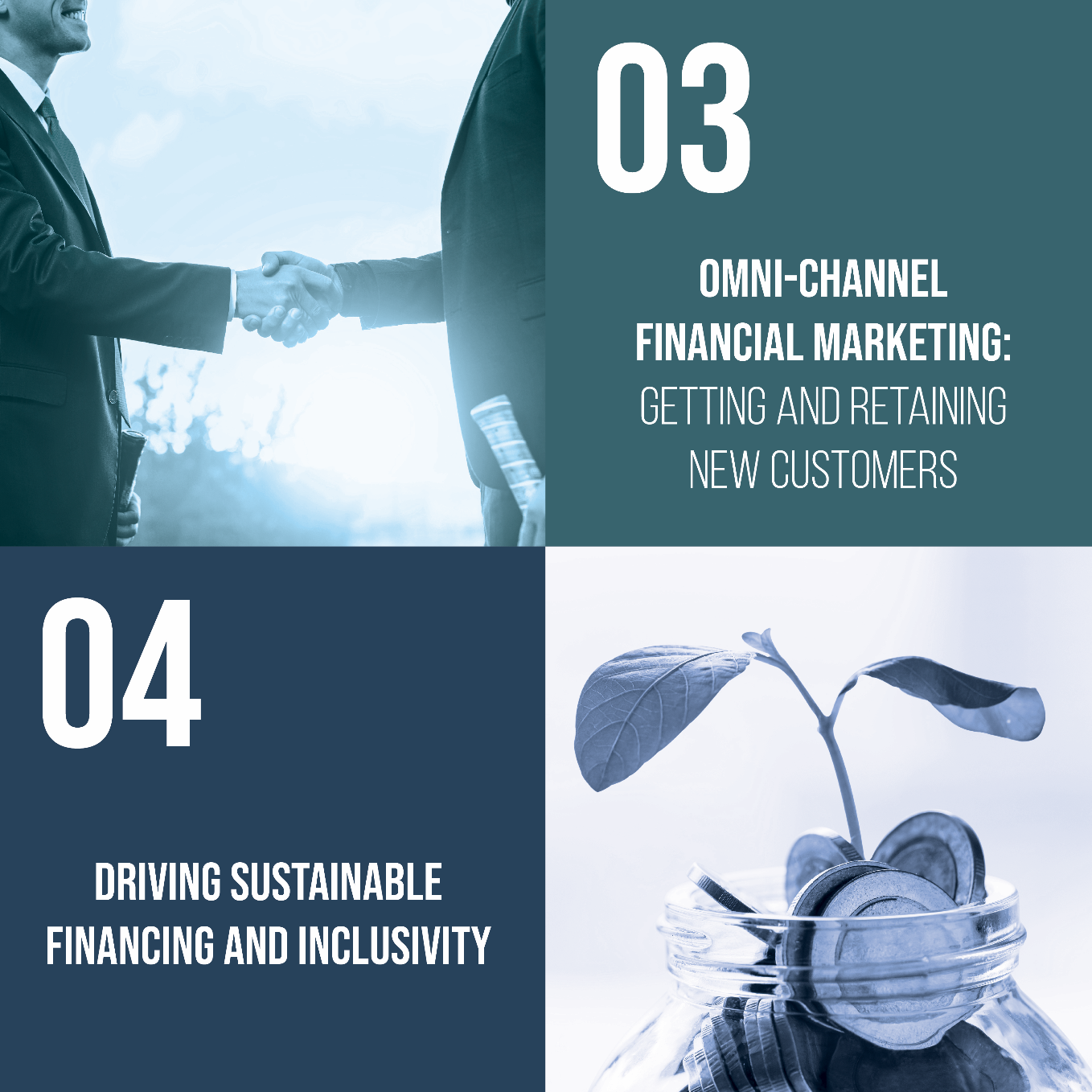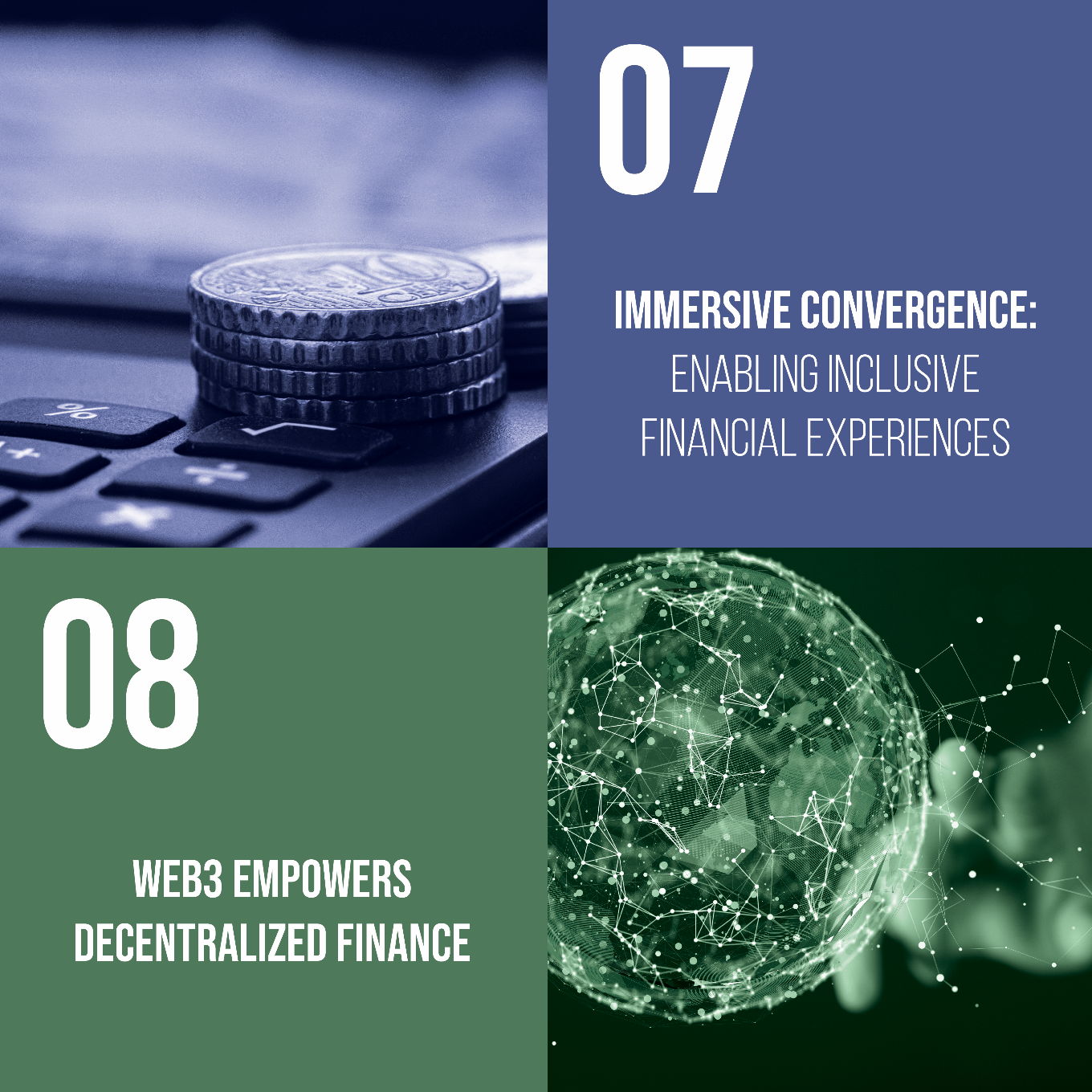8 Fintech Trends Shaping the Future of Financial Services
Fintech companies are leading the way by being in the frontier of new, innovative technologies such as generative AI, cloud-native services, blockchain, Web3, and immersive convergence to provide faster, more convenient and efficient financial services. The global fintech market is projected to reach a market size of US$174 billion in 2023 and continue to grow.
To make sense of these developments, Tencent has produced a research report titled "Intelligent Innovation and Internet 2023: Top Trends of Financial Technology." The report offers valuable insights from industry leaders on topics such as innovation, intelligence, inclusiveness, security and integration, and acts as a reference for the development planning of financial technology.

1. Generative AI: Boosting Productivity
Generative AI, powered by advanced language models, is transforming the financial services sector. Unlike traditional AI methods, generative AI goes beyond analyzing existing data. By training on vast amounts of data, it can produce new content including tabular data, media data like images, videos, voices, and text data. Generative AI can improve market forecasting and reporting, provide personalized customer solutions, streamline operations, enhance compliance and risk management and identify new opportunities.
Financial institutions can utilize historical data to fine-tune these models and gain swift insights to enhance customer service and optimize operations. Generative AI can be integrated into finance through Generative AI as a Service (GaaS) and Generative AI as a Component (GaaC). GaaS provides ready-to-use generative AI technology, while GaaC is module-based generative AI technology that integrates into existing financial workflows.

2. Cloud-native to Digital-native Solutions: Powering Financial Digitalization
The advent of cloud-native solutions, which free up the need to physically host servers, provides an opportunity for financial institutions to comprehensively upgrade their IT architecture and become more digitally native. This approach harnesses rapidly-evolving cloud technology to progress towards digital-native solutions, delivering more efficient, flexible and secure financial services.
Tencent Cloud's Tencent Cloud Stack (TCS) is a cloud-native ecosystem developed in partnership with financial institutions, including insurance companies, to support their digital transformation. The platform caters to critical business systems for insurance companies to become digitally native and will continue evolving and adapting to changing business needs and customer expectations.
3. Omni-channel Financial Marketing: Getting and Retaining New Customers
Today, customers expect seamless banking experiences across multiple channels. Financial institutions are adopting digital strategies and implementing customer-centric, omni-channel marketing models that encompass both online and offline interactions. This approach improves the overall customer experience and enables behavior prediction, customization and personalization.
Omni-channel marketing can be valuable in industries such as banking, securities, and insurance, helping them reach new users, promote products, sustain engagement and build a strong brand image. Financial institutions provide a secure and seamless omni-channel experience that enhances customer loyalty and retention.
WeBank, a leading digital bank under Tencent, harnesses the group's communications and advertising ecosystem to successfully acquire and engage customers through its omni-channel financial operations.

4. Driving Sustainable Financing and Inclusivity
The basic characteristics of fintech have always embraced innovation and contributing towards sustainability. It enables green and inclusive finance, and supports environmental, social, and governance (ESG) initiatives.
Fintech leverages digital technology to enhance the accessibility, efficiency and transparency of sustainable finance. It facilitates better risk management, data analysis and the creation of financial products that align with environmental and social goals.
Tencent Enterprise Fintech Platform exemplifies fintech's role in sustainable financing. Developed in partnership with banks, it offers inclusive financing services for small and medium enterprises (SMEs). Such a collaborative model of developing an inclusive finance ecosystem can be reproduced in different markets.
Privacy computing ensures secure and trusted circulation of financial data. It involves the use of advanced technologies and systems where multiple parties can collaborate on data analysis and machine learning without revealing their individual data. The goal is to ensure that data remains available but invisible during its circulation and integration.
Tencent provides privacy computing solutions that protect financial data through methods like federated learning and multi-party secure computation. Financial institutions can securely collaborate on tasks such as statistics, computations, modeling and anonymous queries while keeping the original data secure within local environments.

6. Dynamic Risk Governance: A New Model of Digital Risk Control
Dynamic Risk Governance (DRG) can transform risk management in dynamic operational environments. It involves continuous risk identification, assessment, mitigation and regular strategy reviews, resulting in improved risk management outcomes and reduced insurance costs.
Implementing DRG requires digitizing processes, centralizing data management and analyzing risks consistently. It establishes a comprehensive view of risks across the organization, ensuring effective governance and efficient risk management.
TenDI allows financial institutions to create a unified risk control platform that improves fraud detection, risk assessment and early warning systems.
7. Immersive Convergence: Enabling Inclusive Financial Experiences
Full-reality interconnection integrates technology with the real world to create immersive financial services that prioritize user needs and data-driven insights. Financial institutions can enhance their operations and services by adopting this concept to improve customer support, streamline processes, drive innovation and ensure efficient technology governance.
Tencent has already successfully implemented immersive convergence in a large bank using an advanced audio-video platform. Customers, no matter where they are, can remotely access a wide range of services, including video assistance, online operations and customer support.

8. Web3 Empowers Decentralized Finance
Web3 technology, harnessing the power of blockchain, smart contracts, and decentralized frameworks, is revolutionizing the internet and the financial industry. It creates an open and interconnected digital world while prioritizing user ownership rights and privacy.
The technology enables decentralized finance (DeFi), an open financial system built on distributed ledgers and blockchain architecture, to develop. DeFi aims to provide various financial services directly to users without relying on traditional intermediaries.
Web3 unlocks the potential of financial markets by establishing trust among multiple parties and enhancing asset liquidity to meet diverse financial needs.
The report shows that fintech is already widely embedded in economies and is shaping the future of financial services. Innovative technologies are enhancing secure transactions, boosting productivity and empowering decentralized finance. In light of these trends, financial institutions will have to continue working on customer trust, optimize operations and drive the development of sustainable and inclusive finance.


